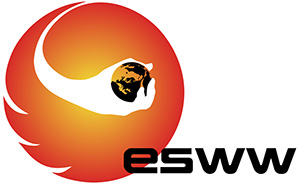Nominations Sought for European Space Weather Medals
Hans Haubold UN Office for Outer Space Affairs
In 2013 three medals in space weather were created on the occasion of the 10th anniversary of European Space Weather Week (ESWW):
- The International Kristian Birkeland Medal for Space Weather and Space Climate relates to outstanding scientific or technological results.
- The International Marcel Nicolet Medal for Space Weather and Space Climate rewards efforts to structure the space-weather community at an international level.
- The International Alexander Chizhevsky Medal for Space Weather and Space Climate rewards a young researcher for major contributions to space-weather research and/or services.
To propose a candidate, please prepare a PDF document with the following information:
- Your name and professional address.
- The name and professional address of the person whom you wish to nominate for a medal.
- Which of the three medals your nomination is for.
- Reasons for the nomination (maximum: two pages). Please make sure that these reasons relate to space weather and that they address the criteria below.
- As far as possible, include the nominee's CV. If you do not want to ask her/him for a CV, and if you do not find one on her/his personal webpage, send at least a nominal CV that emphasizes the points for which the application is made (publications, achievements, etc.).
- If possible, please include letters of support from two other colleagues, preferably from countries other than yours. You may also include those two colleagues as co-signatories on the nomination.
- Up to five references (journal articles, prizes, patents, etc.).
Self-nominations are not permitted. The Medal Committee may not award a medal if it considers that the applications do not have the necessary level of international excellence.
Send your PDF to the Medal Committee by email. Deadline: 14 September 2014.
Criteria for the Medals
All three prizes are prestigious recognitions in space weather. They only recognize excellence. This is difficult to measure, but some criteria are common to the three of them. The work must have been documented (in peer-reviewed journals or book chapters), or must be a technological contribution that has proved to work (not a project or a concept). It must be relevant to space weather and/or space climate. It must also be internationally recognized. On top of those common criteria are some specific to each prize:
- Criteria for awarding the Kristian Birkeland medal: The candidate must have demonstrated a unique ability to combine basic and applied research to obtain useful products, preferentially being used outside the research community, or across disciplines in research. The work must have led to a better physical comprehension of the solar or terrestrial phenomena related to space weather, to a drastic improvement of the modeling, or to a new generation of instruments for space weather observations.
- Criteria for awarding the Marcel Nicolet medal: The candidate must have demonstrated a unique ability to bind the space weather community in a spirit of peace and friendship, to educate in and outside of the space weather community, to go beyond the space weather research community and address a larger audience, and/or to serve the space weather community in conveying a roadmap going beyond the science involved.
- Criteria for awarding the Alexander Chizhevsky medal: The candidate must have taken unexplored ways, potentially at risk, to reach a successful achievement and must have earned his or her doctorate within the 8 years before the ESWW at which the medal is awarded. Practically, it would be useful to obtain a recommendation letter from the PhD advisor in case (s)he is not the person sending the application. In case of pregnancies, the 8-year period is augmented by 1.5 years per child.
For more information, including biographies of Birkeland, Nicolet, and Chizhevsky, see the ESWW Medal Award page.


